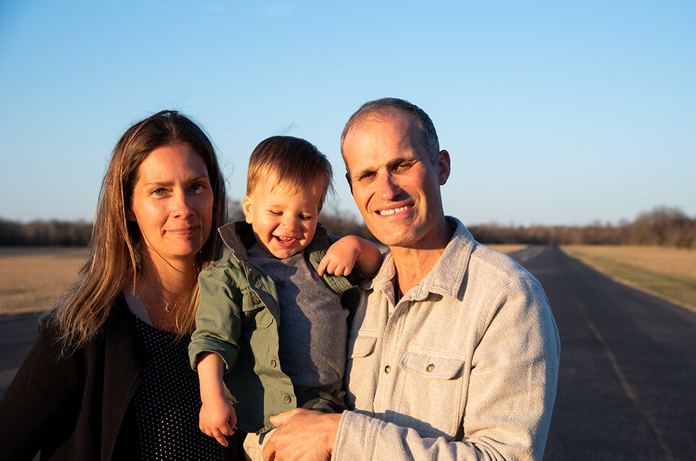
Just after 5 PM on a Friday afternoon, with two goals in mind, to support a friend’s Nashville eatery during the COVID-19 pandemic, and to pick up dinner for friends, Marcus Trammell got behind the wheel. He pulled into a nondescript strip mall off of a nondescript road and instantly, his life changed forever. “As I was pulling in, a drunk driver hit my car on the passenger side. She was going 75 mph.” said Trammell. “The police said later they thought I’d die at the scene, but I woke up in the hospital.”
Upon waking, Trammell didn’t remember who he was, but he did remember having a family. “I knew I had a son, but I couldn’t remember his name. I could just remember walking with him on a bright, sunny day. That’s all I had.” said Trammell. That was enough. From that moment forward, a relentless determination to fight back to health for his family sustained him. “The early days were extremely tough. I still didn’t know exactly what had happened, but I did have a very specific recollection of having a family, my wife and newborn son. That’s what drove me.” said Trammell. I decided then that I would do whatever I had to do to get out of that bed and help raise my child.”
Trammell’s physical injuries were extensive. He suffered from a fractured skull, broken collarbone, broken ribs, fractured lumbar spine, and a brain hemorrhage. The severity of his injuries required him to be placed in an induced coma for several weeks at Vanderbilt University Adult Hospital (VUAH), where he received his initial care. The first stages of recovery involved Trammell relearning many basic functions such as swallowing and walking. Following his time at VUAH, Trammell required a month of inpatient rehabilitation and nearly a year later is still navigating the challenging landscape of recovery from a traumatic brain injury, though his progress has been amazing.
Trammell is certainly not alone. An estimated 4.8 million drivers were seriously injured in crashes just last year. One thing that sets him apart, however, is his commitment to help others who have experienced similar tragedies resulting in traumatic brain injury by sharing his story. His website, theheadfix.com, shares his experience in great detail and gives readers a window into the diverse range of treatments he has received. In addition to practical information, Trammell also uses the site to share inspiring and uplifting anecdotes of others who have travelled a similar path. He’s also produced a 10-minute documentary film outlining his recovery journey which can be viewed on the site.
It was, in part, a decision to move to his home state of Michigan during his recovery that awakened his desire to inspire others. “I grew up in Michigan, and my family and I decided that the woods and water there would be restorative. I swam every day in Lake Superior, walked in the woods, and spent time in nature reading books and listening to head trauma podcasts.” said Trammell. “It was during that time when I decided that no matter what, I would make something of this suffering, to get it out to others that there is hope, that there is joy.”
And just over a year after his accident, Marcus Trammell exudes hope and joy. He has returned to his post as associate director of the Wendland-Cook Program in Religion and Justice at Vanderbilt University Divinity School, is driving again, and perhaps most importantly, raising his son Eero alongside his wife Heidi. Of course, challenges still exist and recovery is ongoing, but Marcus Trammell is “choosing the path of post-traumatic growth.”